Sensor Sweep: Peter Cushing, Christopher Lee, Robert Bloch, Fredric Brown
Monday , 14, November 2022 Sensor Sweep 1 CommentRPG (Walker’s Retreat): If you managed to make a not-crap game, document it in a competent manner, target the right audience, and shill it to them properly then you will get attention that converts to sales- and sales that convert to an audience of users that want to give you more money.
Robert E. Howard (John C. Wright): The Black Stranger was unpublished in
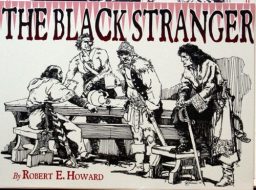
SONY DSC
Robert E. Howard’s lifetime. It first appears in Fantasy Magazine, in March 1953, seven months after the posthumous publication of God in the Bowl. It is the second and last of his posthumous publications, not counting fragments and pastiches.
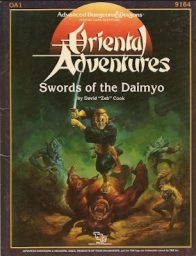
RPG (Grognardia): Japanophilia was a significant pop cultural force in North America and Europe during the 1980s. That Dungeons & Dragons would eventually embrace these interests would have surprised no one who had been paying attention to the matter.
Cinema (Arkhaven Comics): Director Terrence Fisher certainly liked what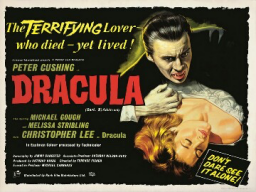 he saw, and decided that the tall, handsome actor with a commanding presence and the foreign looks were just what he needed for Hammer’s next project. Dracula. And after a threatening letter from Universal: Horror of Dracula.
he saw, and decided that the tall, handsome actor with a commanding presence and the foreign looks were just what he needed for Hammer’s next project. Dracula. And after a threatening letter from Universal: Horror of Dracula.
Again, Hammer had the problem of all manner of legal ravaging being threatened by Universal Studios. The Curse of Frankenstein hadn’t come out yet. Consequently, this version of Dracula didn’t resemble either the novel or the Lugosi movie.
RPG (Tenkars Tavern): I heard about this a few days ago, but it wasn’t for me to break the news. I received this email late this afternoon from Troll Lord Games: Troll Lord Games and Frog God Games are pleased to announce that they have reached an agreement to officially support the Castles & Crusades role-playing game via Frog God Games products. Troll Lord Games has published the C&C RPG since its first printing was released in 2005.
Streaming (LegacyKillaHD): Netflix’s The Witcher continues to suffer more chaos as Henry Cavill clashed with the showrunner, fans petition to have the writers fired & some criticize Cavill’s support…
Forthcoming (DMR Books): DMR Books is pleased to announce the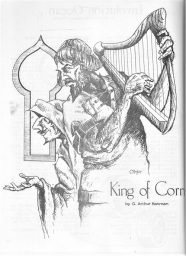 upcoming release of A Feast of Ambrosia: The Adventures of Bingor and Donalbain by Glenn Rahman. The “heroes” of this collection, the sly Sicilian scoundrel Bingor and the Scottish bard Donalbain, have their origins in the small press fanzines in the 1970s.
upcoming release of A Feast of Ambrosia: The Adventures of Bingor and Donalbain by Glenn Rahman. The “heroes” of this collection, the sly Sicilian scoundrel Bingor and the Scottish bard Donalbain, have their origins in the small press fanzines in the 1970s.
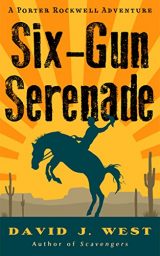 Weird Westerns (Marzaat): Several reviews of weird westerns from David J. West are coming up. Given their stats, my weird western reviews are about as useful as a lame mule dying of thirst in the desert. They don’t look capable of carrying their weight much longer. I’m tempted to put a bullet through their head. We’ll see if water shows up.
Weird Westerns (Marzaat): Several reviews of weird westerns from David J. West are coming up. Given their stats, my weird western reviews are about as useful as a lame mule dying of thirst in the desert. They don’t look capable of carrying their weight much longer. I’m tempted to put a bullet through their head. We’ll see if water shows up.
RPG (Monsters & Manuals): n the days when I used to frequent RPG discussion forums on t’internet, I sometimes used to see people complaining about their woes of trying to run a ‘sandbox’ campaign. “All my players do is sit there!” a DM would moan. “We didn’t know what we were supposed to do!” a player would whine. This seems to suggest a level of almost pathological passivity; given just the tiniest ounce of initiative and creativity, a rudimentary D&D sandbox campaign should almost be able to run itself from the results of some random generator results alone.
Art (Ty Johnston): Like no small number of people online of late, I’ve been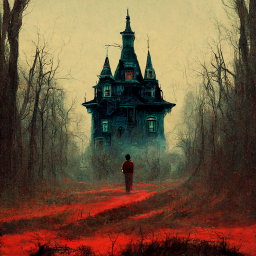 experimenting with artwork that’s created by Artificial Intelligence. For the most part I’ve been making use of the Midjourney engine over at their Discord page.
experimenting with artwork that’s created by Artificial Intelligence. For the most part I’ve been making use of the Midjourney engine over at their Discord page.
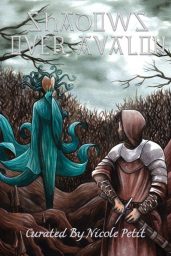 Authors (DMR Books): My name is Tim Hanlon and I live in the state of Queensland in Australia. A lot of people may have to look that up and find where it is in the world. I have been writing since I can remember but began submitting during the Great Lockdown of 2020. I’ve had a little bit of success, which is nice, and a lot of heartache. Not so nice.
Authors (DMR Books): My name is Tim Hanlon and I live in the state of Queensland in Australia. A lot of people may have to look that up and find where it is in the world. I have been writing since I can remember but began submitting during the Great Lockdown of 2020. I’ve had a little bit of success, which is nice, and a lot of heartache. Not so nice.
D&D (Beyond Fomalhaut): When something takes off and becomes successful, you will invariably get a lot of interest, and a lot of people who will want to get involved. Success is infectious. The people who got involved invite other people who are also interested, and they in turn also invite yet more people who are vaguely into the thing, maybe, but they are a lot more into being part of a big crowd. However, the defining boundaries of what made that specific thing so interesting in the first place also become blurry. Definitions are drawn up and debated, edge cases are tested, and you get a sort of fuzzy boundary between “this is the thing” and “this is not the thing”.
Tolkien (Tolkien & Fantasy): A quick note to remark on the passing of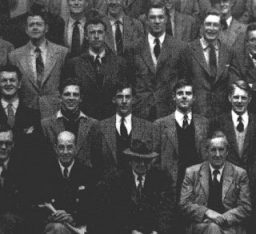 Tolkien’s former student, J.S. Ryan, who later published a number of books on Tolkien. Ryan died in early July at the age of approximately 93. I say approximately because Ryan himself had a policy of never giving out his birthyear (“lest it be used against me” he once wrote me).
Tolkien’s former student, J.S. Ryan, who later published a number of books on Tolkien. Ryan died in early July at the age of approximately 93. I say approximately because Ryan himself had a policy of never giving out his birthyear (“lest it be used against me” he once wrote me).
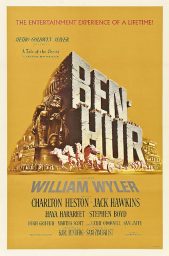 Cinema (Collection Reviewed): I grew up watching this almost every year, just like The Ten Commandments and King Kong. Like with those movies, I was swept up by the epic scope, the exoticisms, and the fantastic elements in Ben-Hur. Rewatching last night, for the first time in some years, I find I’m still transfixed by it. Sure, Hugh Griffiths’ brown-face makeup is a little distracting, a lot of the dialogue is stilted, and except for Judah Ben-Hur the characters are thin, but I don’t care. It’s a surprisingly devout and reverential Hollywood Biblical epic.
Cinema (Collection Reviewed): I grew up watching this almost every year, just like The Ten Commandments and King Kong. Like with those movies, I was swept up by the epic scope, the exoticisms, and the fantastic elements in Ben-Hur. Rewatching last night, for the first time in some years, I find I’m still transfixed by it. Sure, Hugh Griffiths’ brown-face makeup is a little distracting, a lot of the dialogue is stilted, and except for Judah Ben-Hur the characters are thin, but I don’t care. It’s a surprisingly devout and reverential Hollywood Biblical epic.
D&D (Spriggan’s Den): While it basically has classes, skills, and talents like in recent D&D editions, Forbidden Land doesn’t have levels. You gain a small number of XP any time you play, but these don’t track progress but rather work as advancement points to spend. Your four attributes (Strength, Agility, Wits, Empathy) remain fixed, but skill increase cost 5XP per new skill rank (1 to 5) and talents costs 3XP per new talent rank (1 to 3).
Science Fiction (Story Hack): re: “The Cold Equations” by Tom Godwin and the discussion following on the SFFAudio podcast. Episode #704 : The Cold Equations. I disagree that this is an important story. Is it effective? Sure. It kept me entertained, wondering what would happen. It guides the reader to a strong emotional place. It’s not a place that’s particularly fun to be, but if you have a heart at all, you feel sorry for the girl.
Science Fiction (Goodman Games): Fredric Brown (1906-1972), prolific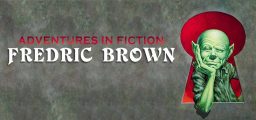 writer across genres who mastered everything from hardboiled mystery to science fiction short-shorts with O. Henry twist endings, is one such author. Brown is still perhaps best known for his short fiction, particularly his short science fiction. A usefully appropriate comparison of his work to The Twilight Zone or The Outer Limits conveys a sense of his interest in alternate universes, alien and supernatural encounters, odd speculations, apocalypses, and surprising twist reveals.
writer across genres who mastered everything from hardboiled mystery to science fiction short-shorts with O. Henry twist endings, is one such author. Brown is still perhaps best known for his short fiction, particularly his short science fiction. A usefully appropriate comparison of his work to The Twilight Zone or The Outer Limits conveys a sense of his interest in alternate universes, alien and supernatural encounters, odd speculations, apocalypses, and surprising twist reveals.
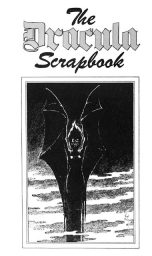 Fiction (Porpor Books): ‘The Dracula Scrapbook’ (176 pp., Bramhall House, NY, 1976) was one of over 170 books authored or edited by the industrious Peter Haining (1940 – 2007), a UK resident who played a central role in publishing books on the genres of science fiction, horror, and fantasy during the 1960s, 1970s, and 1980s, a period of time when so-called geek or nerd culture was slowly but surely coming to the fore as a pop culture phenomenon.
Fiction (Porpor Books): ‘The Dracula Scrapbook’ (176 pp., Bramhall House, NY, 1976) was one of over 170 books authored or edited by the industrious Peter Haining (1940 – 2007), a UK resident who played a central role in publishing books on the genres of science fiction, horror, and fantasy during the 1960s, 1970s, and 1980s, a period of time when so-called geek or nerd culture was slowly but surely coming to the fore as a pop culture phenomenon.
Cinema (Arkhaven Comics): That peculiar little affectation as well as his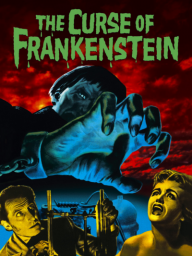 thin, hawkish features and his sad but intelligent eyes tended to typecast him in Scientist Man roles. Most of his 131 credits on IMDB were for characters with Doctor or Professor in front of their names. So far as Peter Cushing was concerned this was more feature than bug because typecast actors were never out of work. That isn’t the only thing he ever played of course. Those same looks occasionally got him roles as war criminals who committed unspeakable crimes against the human race.
thin, hawkish features and his sad but intelligent eyes tended to typecast him in Scientist Man roles. Most of his 131 credits on IMDB were for characters with Doctor or Professor in front of their names. So far as Peter Cushing was concerned this was more feature than bug because typecast actors were never out of work. That isn’t the only thing he ever played of course. Those same looks occasionally got him roles as war criminals who committed unspeakable crimes against the human race.
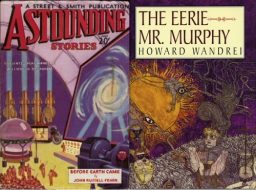 Weird Fiction (M Porcius): Like a year ago I purchased 2003’s collection of fantasy stories by Howard Wandrei The Eerie Mr. Murphy, largely so I could become more intimately acquainted with Wandrei’s intricate, clever and disturbing drawings. We’ve already read five stories from The Eerie Mr. Murphy and recorded the experience here and here. Let’s read four more today.
Weird Fiction (M Porcius): Like a year ago I purchased 2003’s collection of fantasy stories by Howard Wandrei The Eerie Mr. Murphy, largely so I could become more intimately acquainted with Wandrei’s intricate, clever and disturbing drawings. We’ve already read five stories from The Eerie Mr. Murphy and recorded the experience here and here. Let’s read four more today.
Fiction (Killer Covers): As Paperback Warrior explained just last month in a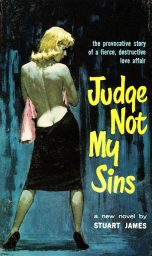 critique of Judge Not My Sins, “Stuart James was a staff writer for True and Popular Mechanics as well as a sports reporter for the Delaware Valley Advance [in Pennsylvania]. He authored original paperbacks for lowly publishing houses like Tower and Monarch.” An earlier review, in the wonderfully named (but now apparently defunct) blog Those Sexy Vintage Sleaze Books.
critique of Judge Not My Sins, “Stuart James was a staff writer for True and Popular Mechanics as well as a sports reporter for the Delaware Valley Advance [in Pennsylvania]. He authored original paperbacks for lowly publishing houses like Tower and Monarch.” An earlier review, in the wonderfully named (but now apparently defunct) blog Those Sexy Vintage Sleaze Books.
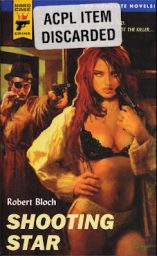 Fiction (M Porcius): If you search for “Robert Bloch” at the internet archive one of the things that comes up is a 2008 Hard Case Crime paperback of two 1950s novels, Shooting Star and Spiderweb. (Shooting Star‘s cover is by comics creator Arthur Suydam; it is OK, but generic and obvious and flat, totally unlike his idiosyncratic and sometimes astonishing work in Heavy Metal or Demon Dreams or other titles.)
Fiction (M Porcius): If you search for “Robert Bloch” at the internet archive one of the things that comes up is a 2008 Hard Case Crime paperback of two 1950s novels, Shooting Star and Spiderweb. (Shooting Star‘s cover is by comics creator Arthur Suydam; it is OK, but generic and obvious and flat, totally unlike his idiosyncratic and sometimes astonishing work in Heavy Metal or Demon Dreams or other titles.)
Fiction (Pulp Fiction Reviews): This is the 20th in the Nate Heller historical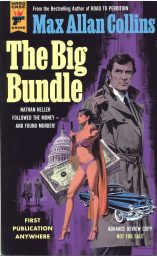 crime series by Collins. If you are unfamiliar with them, the conceit is simple enough. Collins, either working alone, or with other collaborators, researches an actual American crime and then drops his fictional private eye into the tale as either an investigator or actual participant in the events. In this case, he becomes both. The story revolves around the 1953 kidnapping of young Bobby Greenlease of Kansas City.
crime series by Collins. If you are unfamiliar with them, the conceit is simple enough. Collins, either working alone, or with other collaborators, researches an actual American crime and then drops his fictional private eye into the tale as either an investigator or actual participant in the events. In this case, he becomes both. The story revolves around the 1953 kidnapping of young Bobby Greenlease of Kansas City.
 Fiction (Paperback Warrior): There is already a lot that can be said about Howard Hunt. He was both a WW2 veteran, a spy, a Hollywood screenwriter, war correspondent, and a criminal. His life has been fictionalized by the film industry, his exploits chronicled by numerous non-fiction books about the infamous Watergate incident, and his possible involvement in the assassination of U.S. President John F. Kennedy. Even Hunt himself wrote non-fiction books about his own life.
Fiction (Paperback Warrior): There is already a lot that can be said about Howard Hunt. He was both a WW2 veteran, a spy, a Hollywood screenwriter, war correspondent, and a criminal. His life has been fictionalized by the film industry, his exploits chronicled by numerous non-fiction books about the infamous Watergate incident, and his possible involvement in the assassination of U.S. President John F. Kennedy. Even Hunt himself wrote non-fiction books about his own life.
Ian Fleming (Vintage Pop Fiction): The Spy Who Loved Me was the ninth of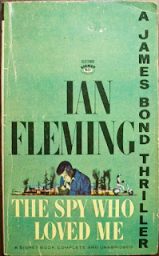 Ian Fleming’s James Bond novels, published in 1962. By this stage Fleming was clearly wanting to vary the formula, to find ways to keep the Bond series fresh and exciting. The Spy Who Loved Me was very much an experiment. It’s told in the first person, and the narrator is a woman.
Ian Fleming’s James Bond novels, published in 1962. By this stage Fleming was clearly wanting to vary the formula, to find ways to keep the Bond series fresh and exciting. The Spy Who Loved Me was very much an experiment. It’s told in the first person, and the narrator is a woman.
D&D (3 Toadstools): It occurred to me this morning, that 17th century Scotland would be a fun place to play D&D. It seems that a great many landowners buggered off to England and followed the king. Which would likely mean that crime would be more rampant. As well just people doing their thing, farming etc. Without a lot of authority, rumours could spread like wildfire. Not to mention that the population appeared to be isolated. This is D&D folks!
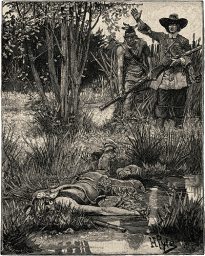 Firearms (Frontier Partisans): Delving into the reading for the upcoming podcast series on King Philip’s War that ravaged New England in 1675-76, it is striking how central firearms were to the conflict. That seems axiomatic: guns tend to be a factor in wars, right?
Firearms (Frontier Partisans): Delving into the reading for the upcoming podcast series on King Philip’s War that ravaged New England in 1675-76, it is striking how central firearms were to the conflict. That seems axiomatic: guns tend to be a factor in wars, right?
Fredric Brown is my favorite short story writer with works spanning science fiction, fantasy, crime, and mystery. He was a master of the short-short story, flash fiction, and the surprise twist ending.